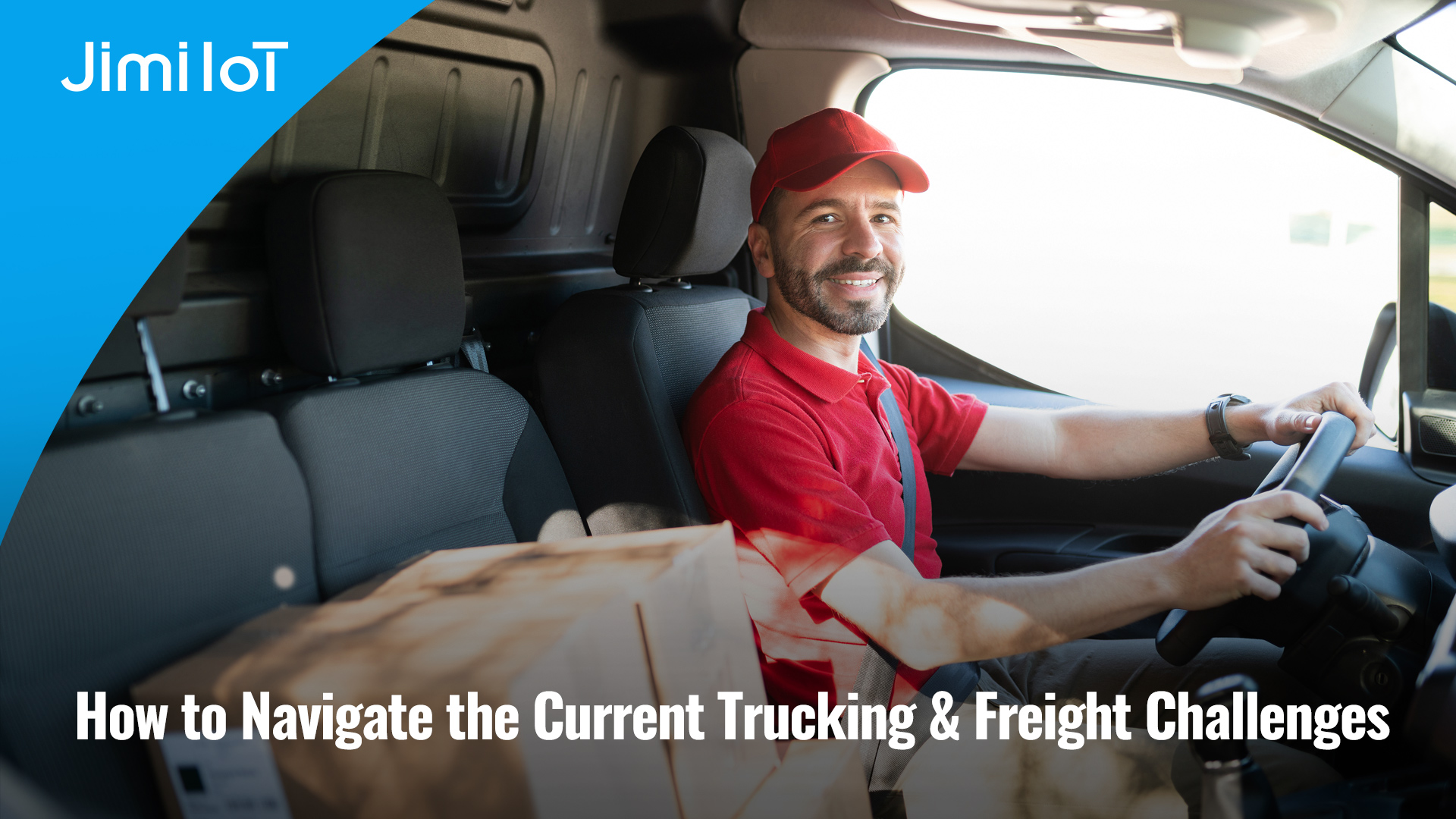Introduction
The trucking and freight industry is the backbone of global commerce, ensuring goods reach their destinations efficiently. However, it faces significant challenges, from rising operational costs to cargo security risks. As the industry evolves, businesses must leverage advanced technologies like GPS tracking and AI-powered DVR solutions to overcome these obstacles.
In this article, we explore five major challenges facing the trucking sector and how GPS technology can provide strategic solutions for fleet operators, logistics providers, and supply chain managers.

1. Rising Fuel Costs & Inefficient Route Planning
Fuel expenses account for nearly 60% of total operating costs in trucking, making fuel price fluctuations a major concern. Poor route planning, idle time, and excessive speeding further increase fuel consumption.
How GPS Tracking Solves This Challenge
Modern GPS tracking solutions optimize fuel efficiency by:
- Real-time route optimization – Advanced GPS systems analyze live traffic data, road conditions, and weather updates to suggest the most efficient routes.
- Geofencing & route compliance – Fleet managers can set predefined routes, ensuring drivers stick to cost-effective paths.
- Idle time monitoring – GPS trackers detect excessive idling and alert managers, reducing unnecessary fuel burn.
By integrating GPS tracking, trucking companies can cut fuel expenses by 10-20%, translating into substantial long-term savings.
2. Cargo Theft & Security Risks
Cargo theft remains a $15-30 billion annual problem in the U.S. alone, with thieves targeting high-value shipments and unsecured parking areas. Traditional security measures often fail to provide real-time visibility into cargo status.
How GPS & DVR Solutions Enhance Security
- Real-time asset tracking – GPS devices installed on trailers and containers provide continuous location updates, ensuring 24/7 cargo visibility.
- Geofencing alerts – If a truck deviates from its designated route or enters high-risk areas, fleet managers receive instant alerts.
- DVR surveillance integration – AI-powered dashcams and DVR systems record road events and driver behavior, providing crucial evidence in case of theft or accidents.
- Tamper-resistant tracking – GPS trackers with anti-jamming technology prevent thieves from disabling location tracking.
With these advanced security measures, businesses can reduce cargo theft incidents by up to 40% and improve insurance compliance.
3. Regulatory Compliance & ELD Mandates
Governments worldwide have introduced strict regulations like the Electronic Logging Device (ELD) mandate and Hours of Service (HOS) rules to prevent driver fatigue and ensure road safety. Non-compliance leads to heavy fines, penalties, and potential license suspensions.
How GPS & Telematics Ensure Compliance
- Automatic driver logs – GPS-enabled ELDs accurately track driving hours, rest breaks, and duty statuses, eliminating manual errors.
- Violation alerts – Fleet managers receive real-time alerts if a driver is nearing their legal HOS limit, helping avoid penalties.
- Data-driven reporting – GPS telematics provide detailed compliance reports for regulatory audits.
- Speed & behavior monitoring – Advanced GPS solutions detect speeding, harsh braking, and unsafe driving habits, promoting road safety compliance.
By leveraging GPS-powered compliance solutions, fleet operators can reduce violations by 60%, ensuring smooth operations while avoiding hefty fines.
4. Vehicle Downtime & Maintenance Costs
Unexpected breakdowns and mechanical failures lead to costly delays, missed deliveries, and customer dissatisfaction. On average, a single truck breakdown costs businesses $400-$700 per day in lost productivity.
How GPS-Based Predictive Maintenance Helps
- Remote diagnostics – GPS-integrated telematics collect real-time engine data, detecting issues like overheating, low battery, or transmission failures.
- Preventive maintenance scheduling – AI-driven analytics predict when a vehicle needs servicing, helping fleet managers schedule maintenance before breakdowns occur.
- Odometer & mileage tracking – GPS systems monitor vehicle usage, ensuring timely oil changes and part replacements.
By implementing GPS-enabled predictive maintenance, fleet downtime can be reduced by 30-40%, significantly lowering repair costs and improving asset longevity.
5. Lack of Visibility in Supply Chain Operations
Supply chain disruptions—caused by weather events, port congestion, or miscommunication—lead to delayed shipments and customer dissatisfaction. Without real-time visibility, logistics managers struggle to track shipments and coordinate deliveries effectively.
How GPS & IoT Improve Supply Chain Visibility
- Live shipment tracking – GPS trackers provide end-to-end shipment visibility, allowing real-time monitoring of delivery status.
- ETA (Estimated Time of Arrival) predictions – AI-powered GPS solutions factor in traffic conditions, driver speeds, and weather data to provide accurate ETAs.
- Temperature & humidity sensors – IoT-enabled GPS trackers monitor perishable goods, ensuring compliance with cold chain requirements.
- Automated alerts & reporting – Fleet operators receive instant notifications in case of delays, diversions, or delivery confirmations.
Enhanced supply chain visibility leads to a 25-35% improvement in on-time deliveries, strengthening customer trust and operational efficiency.
Conclusion:
As the trucking and freight industry faces increasing challenges, GPS tracking and AI-powered DVR technology have become essential tools for businesses striving to stay competitive. From fuel cost reduction to cargo security, compliance, predictive maintenance, and supply chain optimization, GPS solutions provide actionable insights and real-time control over fleet operations.
Fleet operators who adopt these advanced technologies gain a significant competitive edge, improving efficiency, safety, and profitability. As the industry moves toward fully connected logistics ecosystems, GPS tracking will continue to be a cornerstone of modern fleet management.
Why JimiIoT
JimiIoT is a global leader in innovative IoT solutions. We provide cutting-edge hardware and software tailored to enhance efficiency and connectivity. Our range of products includes advanced GPS tracking devices, asset management solutions, smart vehicle dashcams, and telematics platforms. With a focus on technological excellence and customer satisfaction, we empower businesses to optimize operations and gain valuable insights from data-driven analytics. Trust JimiIoT to drive positive change and unlock growth opportunities in the digital age.
If you would like more details, please visit Facebook, LinkedIn, INS, and Twitter pages for further information.
